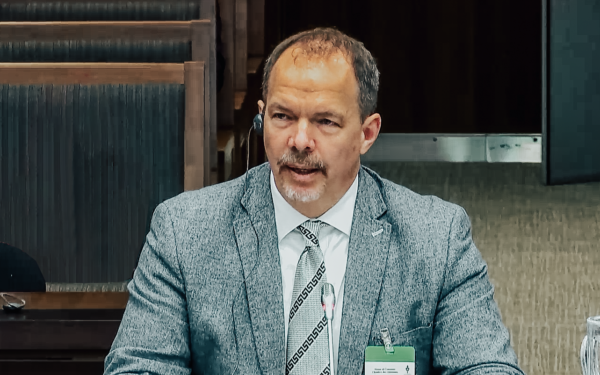Toronto, ON – June 21, 2016 – A revamped online tool called Access My Info is launching today and will help Canadians ask these questions directly of the companies they do business with, with the power of the law behind them.
Toronto, ON – June 21, 2016 – Do you ever wonder if your cell phone provider is logging your location? Or if your online dating app is sharing your sexual preferences with marketers? Does your fitness tracker know more about you than it needs to? A revamped online tool called Access My Info is launching today and will help Canadians ask these questions directly of the companies they do business with, with the power of the law behind them.
“Access My Info empowers individual Canadians to easily exercise their legal right to understand what data is out there about them, whether that information is shared and, if so, with whom,” said Andrew Hilts, Executive Director of Open Effect and researcher at the Citizen Lab at the Munk School of Global Affairs, University of Toronto, the groups that created Access My Info.
He continued: “This will help consumers make informed choices, and help companies assess whether their policies and practices are meeting the needs of their customers while also complying with the law.”
Under the Personal Information Protection and Electronic Documents Act, Canadians can request complete records of the personal information held about them by the companies providing them services. They can ask a company questions and get answers about their data, and correct misleading or false information. But Hilts says knowing the right questions to ask is critical.
“It’s hard to know what to ask about your data without first knowing what is being collected about you,” said Hilts. “With Access My Info, you can spend a few minutes and create a custom-made letter that asks careful questions of your telco, your dating app, or your fitness tracker about how data is collected and used.” The letters were written by policy experts working at the Citizen Lab, where Access My Info is part of the Lab’s Telecommunications Transparency Project. The project investigates how telecommunications data is monitored, collected, and analyzed for commercial, state security, and intelligence purposes.
“Access to information is a fundamental human right. Yet, research has shown most Internet users are either ignorant of, or apathetic about, the data they give away and what companies and governments do with it. When faced with lengthy and confusing terms of service, most users simply click ‘I agree’,” said Professor Ronald Deibert, Director of the Citizen Lab.
“It will not be easy to change this disposition, to cultivate a curious citizenry and a user base that takes stewardship over the data they entrust to companies and governments,” continued Deibert. “However, tools like Access My Info, in which consumers exercise their privacy rights to inquire how companies handle the data they collect on them, will help both bolster these rights and let companies and governments know we are watching.”
An earlier version of Access My Info helped thousands of Canadians access their data from telecommunications companies. This new version allows people to request data from more government departments and more companies in more industries. Hilts says additional companies and sectors will be added in the near future.
The Access My Info project is funded by the Canadian Internet Registration Authority (CIRA) through its Community Investment Program.
“The online relationships between consumers and Canadian companies are important, growing and grounded in trust,” said David Fowler, CIRA’s director of marketing and communications. “CIRA is helping to build a better online Canada, and a big part of that is making people more digitally literate and better protected in their online dealings.”
He added: “Just as we should do periodic checks of our own credit scores to ensure that our financial house is in order, it’s equally, if not more, important to know what the companies we do business with are doing with the information we give them.”
Media Availability
* CIRA and Open Effect have spokespeople available to speak to this story. Please contact CIRA’s Ryan Saxby Hill at [email protected] or 613-316-2397 or the Munk School of Global Affairs’ Dena Allen at 416-946-0123, 416-795-3902 or [email protected] to arrange an interview.
About Open Effect
Open Effect is a Canadian not-for-profit that conducts research and advocacy focused on ensuring that people’s personal data is treated securely and accountably. It builds interactive advocacy tools to empower individuals to learn about and exercise their rights online.
About The Citizen Lab
The Citizen Lab is an interdisciplinary laboratory based at the Munk School of Global Affairs, University of Toronto, focusing on advanced research and development at the intersection of information and communication technologies (ICTs), human rights, and global security.
About CIRA’s Community Investment Program
Through the Community Investment Program, CIRA funds projects that demonstrate the capacity to build a better online Canada. The CIRA team manages Canada’s country code top-level domain on behalf of all Canadians. A Member-based organization, CIRA represents the interests of Canada’s Internet community internationally. To date, the Community Investment Program has supported 78 innovative projects across Canada with grants totalling $3.2 million.




